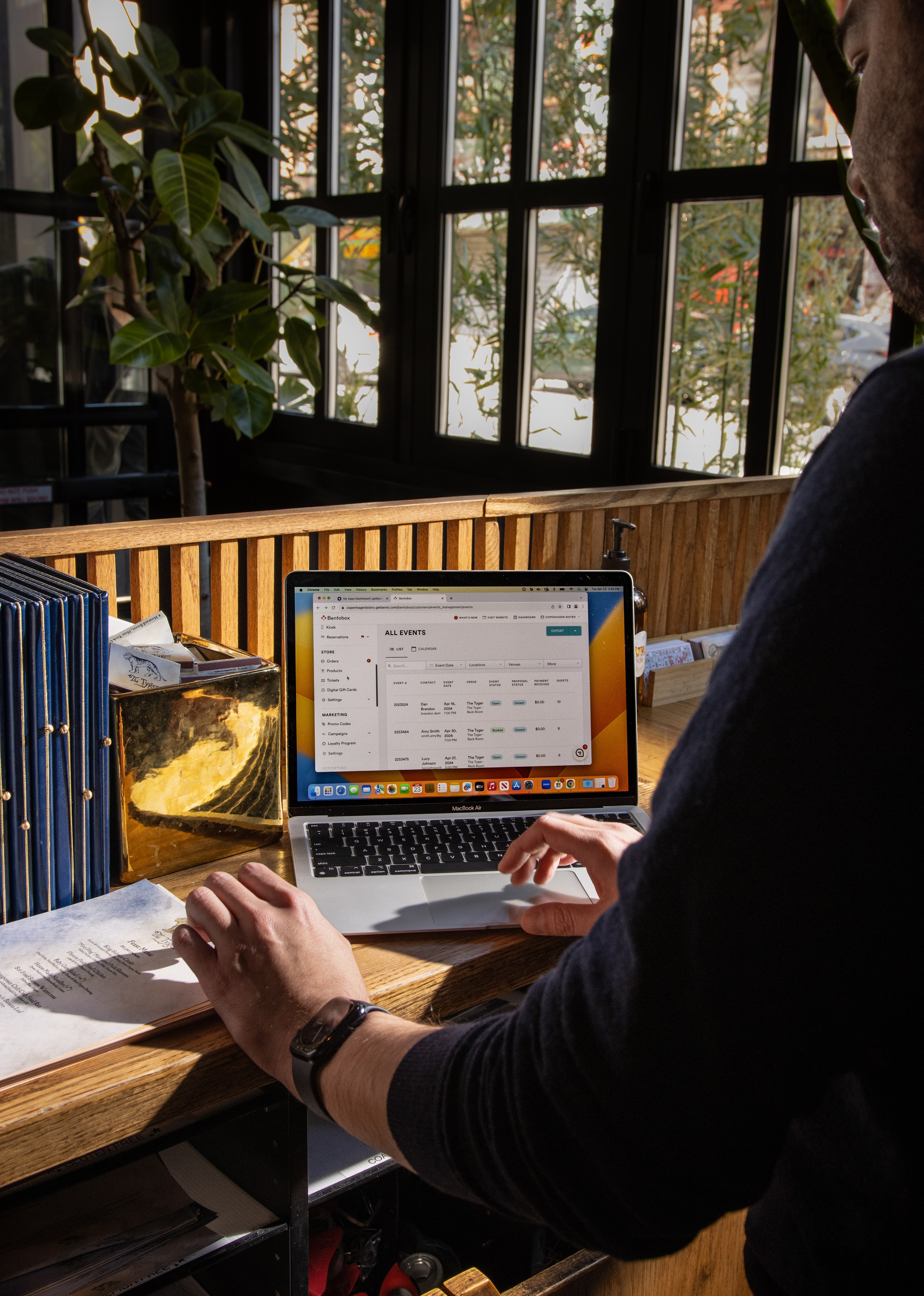Restaurant Forward
Natasha Pickowicz on Why Restaurants Are Getting Political
July 14, 2022
The pastry chef & activist on why hospitality is finding its voice in a fraught political moment.
Restaurant Forward profiles the technology, trends and people changing the face of hospitality. Have a trend or industry expert you'd like to see featured? Send suggestions to RestaurantForward@getbento.com.
On a certain morning in November 2016, pastry chef Natasha Pickowicz woke up to a world she did not like the look of. So she decided to do something about it.
At the time, Pickowicz was working at a restaurant that served a tony clientele on Manhattan’s Upper East Side. Not knowing how her foray into political activism would fare among her restaurant peers, she forged ahead in putting together a charity bake sale with proceeds going to Planned Parenthood NYC. The response from the community surprised her: far from shying away from political activism, New York restaurants were eager to contribute their resources to a cause they believed in.
Seven years down the line, Chef Pickowicz has become a prominent voice in the culinary community’s activist wing. As something of a conscientious expat from restaurant life, Pickowicz is an in-demand pastry chef who donates her time and resources to numerous nonprofits, in addition to leading pop-ups under the brand Never Ending Taste in cities around the US.
We caught up with Pickowicz recently, on the heels of her latest bake sale benefiting reproductive rights, to get her thoughts on the massive political energy coursing within today’s restaurants — and on the need for the dining public to get real about the immutable politics of food.
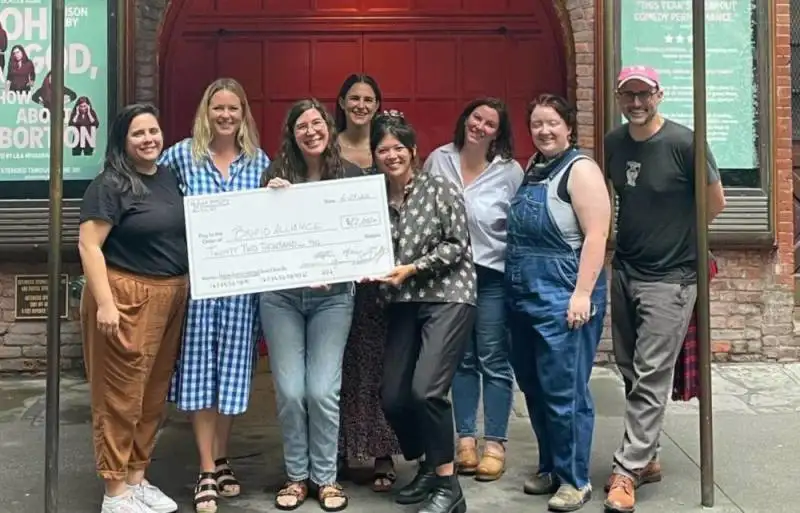
BentoBox: How did you get started as such a prolific fundraiser?
Pickowicz: I’ve produced four bake sales now, three of which were before the pandemic. The genesis of the first one was the election in November 2016, and specifically my fear that Trump was going to take away reproductive rights for people with uteruses, which he did eventually accomplish. I picked Planned Parenthood NYC as the nonprofit that we wanted to fundraise for, partly because they were in our neighborhood. It was really important to me that we work with people we could meet in person and have a real back-and-forth with.
After that, the bake sale was such a hit that every year it became exponentially bigger and crazier. The first year I think we raised $8,000. In 2018, we raised $24,000. And then in 2019, which was my last bake sale with that restaurant group, we raised over $100,000.
Why format your fundraising as a bake sale?
A bake sale is a concept rooted in decades and decades of domestic work and in women at home. It's not something you see in fine dining very often. I really loved juxtaposing the rarefied world of NYC restaurants with a concept you might associate with raising money for soccer uniforms or getting a new rec center. These causes aren’t glamorous so much as they’re domestic efforts people care deeply about.
I think it grew from there because a bake sale makes so many other levels of community engagement possible. It brings together people working behind the scenes, especially the chefs who don't get out of their kitchens for seventy hours a week. It also lets us price items affordably — every item costs $5 at our bake sales — which lets people (like myself) try things from restaurants we would never normally be able to afford. So for me, the bake sale is a perfect expression of a grassroots-organizing and community-building sort of endeavor.
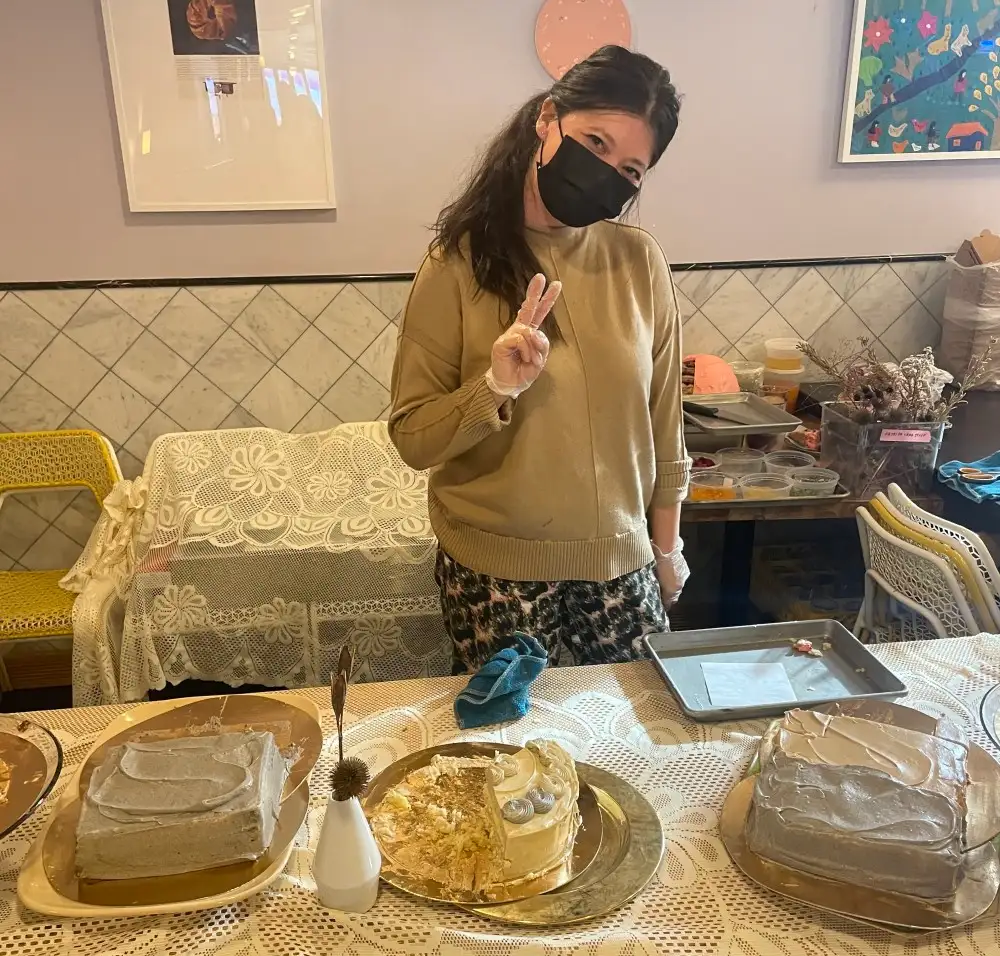
Why do you think restaurants are a natural place for activism?
The reason I was drawn to service work and restaurants in the first place is that they bring people together. They’re venues that create community. And community is the root of political action.
The restaurant is itself a kind of platform. You're sharing your value system based on, you know, the way you’re sourcing ingredients and whether you’re working with farmers or buying organic. The nature of the dishes that you're putting on the menu: are they appropriating other cultures in some way? Are they original ideas? Are they seasonal and local? And then the human side: Is the staff diverse? What are they being paid? What are the working conditions? These are all political questions.
A topic like abortion access is more obviously controversial, but it’s no more political than the rest of the machine that brings you a perfectly-plated dish. And for those of us in restaurants, it’s no less important to speak up around those issues. So yes, food is absolutely political. And it can be used as a tool for social change.
Are restaurants typically receptive to engaging in political activity?
Oh my god, yes. They are so eager to make an impact. Whenever I reach out to people for a bake sale, everyone unanimously is asking, “What do you need? What can I do? I need to do this.” And you realize that people working in restaurants are craving these moments of connection and are so happy and desperate to be a part of something like this.
Granted, we New Yorkers are in a blue state. I think people who work in restaurants tend to be a little to the left already. Regardless, it's always been unmitigated, like, “I love that you're doing this, thank you for organizing, tell me when/where/how much,” etc.

Do restaurants ever worry it’s risky to take political stances?
There are some restaurants that keep a very neutral appearance because they don't want to ruffle feathers. I was very lucky to be able to say, “I'm a chef in this restaurant, and I believe in abortion access for everybody and I stand with Planned Parenthood.” That's not always going to go over smoothly with everyone, especially if you're running a restaurant where perhaps a lot of tourists are coming in. They’re looking to have a fun, smooth, easygoing time and they don't want to be confronted with anything that is unpleasant or brings tension to the table. (And I'm like, “Listen, good for you. How lucky for you to be able to have a frictionless existence.”)
Of course, if you're running a successful restaurant, you have the privilege to say, “I don't care if we lose customers based on this political idea we want to put forth.” But the idea is much more about activating and engaging the people who do believe in what you're doing. That’s always been more important to me than worrying about putting someone off.
How do diners react? Have you ever gotten, “Keep your politics away from my food?”
I mean, to me that sentiment is an incredibly dehumanizing way to look at the service industry. Restaurants are organisms made and staffed by people. When a customer says “Don't bring politics into my food,” they’re sort of saying, “You're not a person and you're not allowed to have opinions or advocate for causes you stand behind.”
For those of us working behind the scenes in a kitchen, our identity is incredibly important to us. And that erasure diminishes the humanity we are trying to communicate to the guests.
OK, but what would you say to someone who said, "You’re free to have your opinion, but politics is stressful and hospitality is supposed to be the opposite."
Well, I would disagree. Here’s the thing: hospitality is theater. It's about putting on a show. It's about magic tricks. You have, you know, the perfect lighting; the calm atmosphere; the delicate, elegant plating. It’s a seduction. And yes, I love that experience too. I get it.
But that seduction is theater. The question is, do you want that theater with the curtain down, so that you can’t see anything backstage, or do you want to engage with it fully, with the curtain up?
For me, I can’t see past the price restaurants have to pay to simulate perfection. When I started working in restaurants at that level, I saw what the cost was, and it made me really disillusioned with the efforts people would go to to create a seamless experience.
If you're a guest, you might see the server pouring you something delicious, but you don't see that as soon as they walk back into the kitchen, they're screamed at. Or that behind your perfectly diced squash is a garbage can full of imperfect squash scraps that didn't get used. So there is a cost to the frictionless guest experience.
I find myself being attracted to businesses that are more transparent about how they operate. I want that seduction to acknowledge the reality of how the restaurant is staying open, how it manages its books, how much the staff is getting paid, how committed they are to zero waste and so on.
The most exciting restaurants to me today are not opaque stages for you to be swept off your feet. They create a different kind of feeling — one more concerned with humanity and transparency and inclusivity. And that's a new feeling for me.
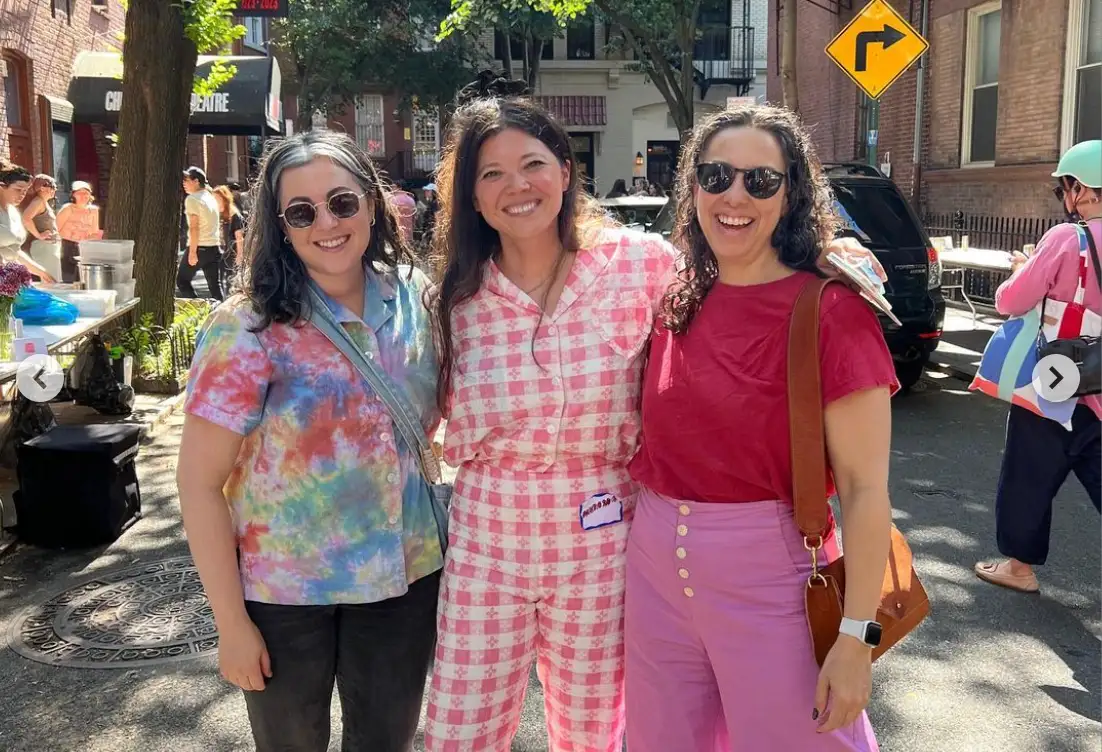
What can restaurants do to amplify their politics more?
The best place to start is your own restaurant. And it’s so hard, I know. It’s becoming almost impossible to run a restaurant. And that makes people even more captive to, you know, investors and VC and having to manage those egos. But if you can create a place that’s vocal about how you’ve built the business and you build your menu the right way, that is an incredibly difficult and valuable act.
There was an incredible bake sale for Ukraine in March hosted by Agi’s Counter in Crown Heights. They got a mix of chefs and cookbook authors to donate. I know how much work those things take, but to those owners, it's just non-negotiable to incorporate this kind of activism into their business model, you know? And that's money they're not making as business owners, at the end of the day. But I think it's more important to them to connect with their community in different ways. Honestly, what I'm noticing is that the people making less money and doing more work are the ones volunteering and giving the most back.
Or take my friends who run Dacha 46 in Brooklyn. They both come from fine-dining backgrounds. Because they felt jaded by working in that mold, they created a Kickstarter that directly told the community: “Hey, if you give us money to get our business going, we promise this will be a place where employees are paid well and we won't have to answer to people who don’t align with our values.” It’s very exciting to see them working directly with a community and making the business a collective effort.
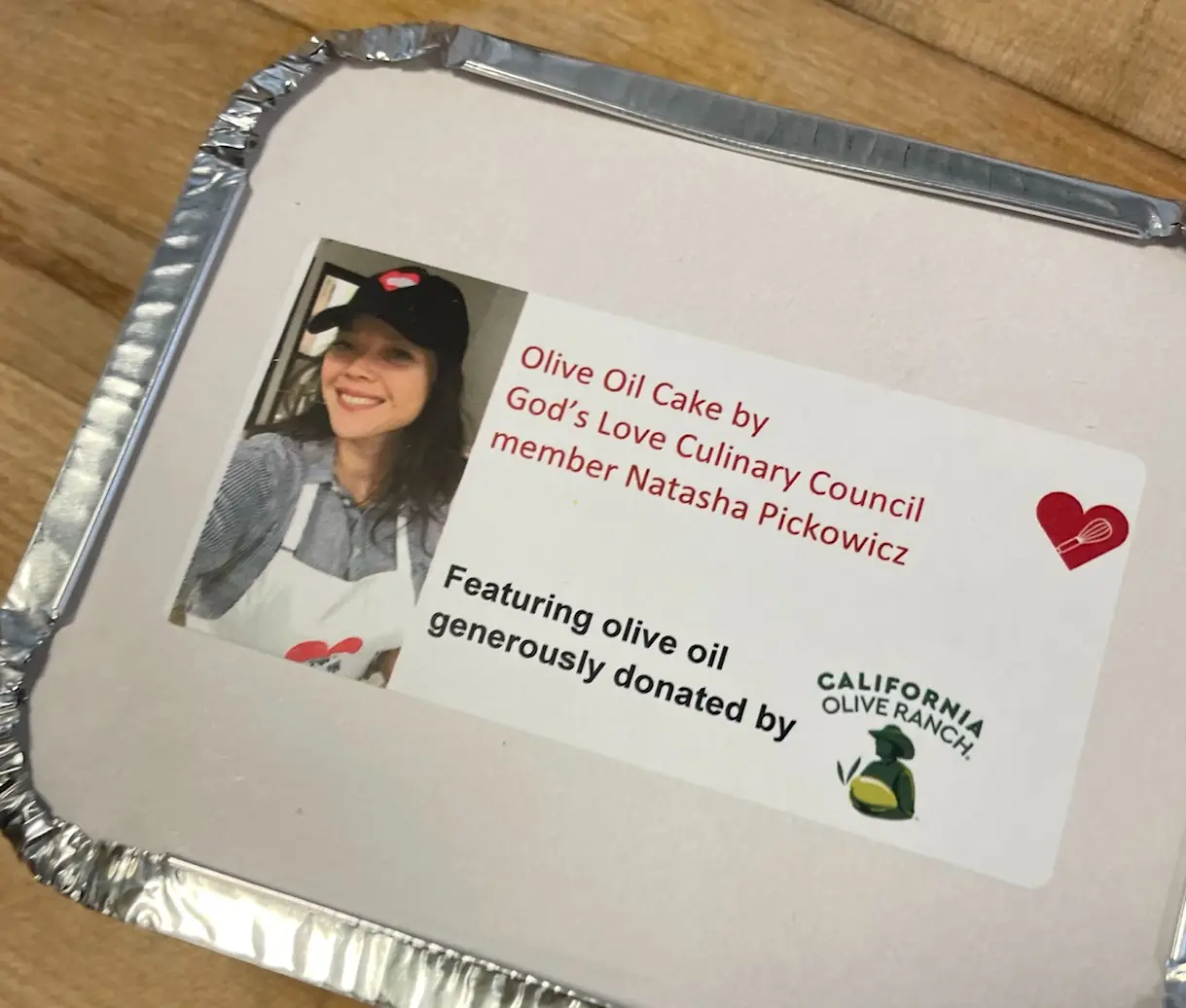
Any advice for other chefs looking to help support a cause with their talents?
If you’re just starting out, find the restaurants already doing the work. Those people usually need help. Understand what resources and skills you have. Maybe you're great with back-end organizing or writing a run-of-show with spreadsheets. Once you've established what your skills are, and what you feel like you have to offer, look to your immediate community and figure out how to connect those dots.If you have an idea, pitch it! You just don't know unless you ask. I used to be so scared of asking and being rejected and feeling embarrassed or something, but a lot of businesses are happy and willing to host or collaborate. Now more than ever, I think.
Follow Natasha Pickowicz on Instagram @natashapickowicz.
Headshot photo by Georgia Hilmer.

BentoBox Marketing & Commerce Platform
Deliver Smarter Hospitality
Want to stand out online, bring in more money, engage your diners, and streamline operations?
Recommended
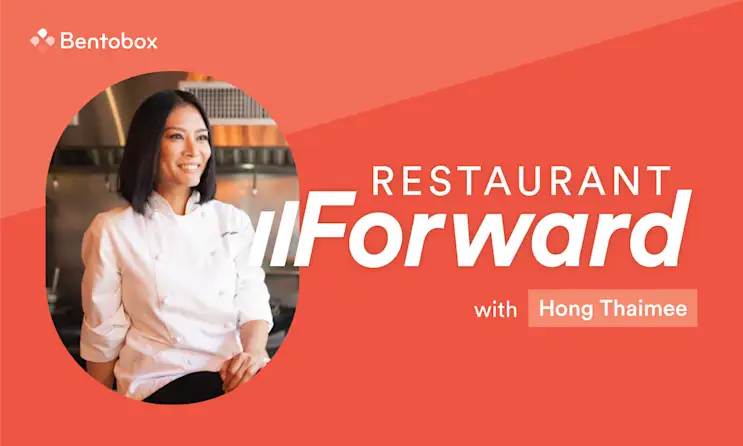
Restaurant Forward
The Future of Virtual Cooking Experiences with Chef Hong Thaimee
June 30, 2022
The whirlwind force behind NYC’s Thaimee Love shares her secrets to a great online cooking class.
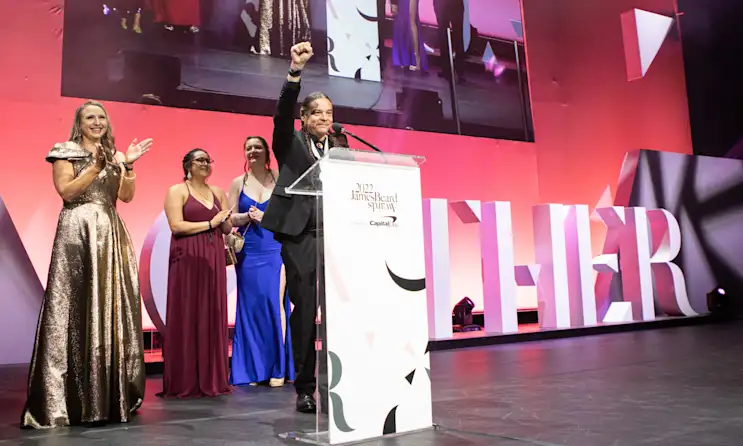
Community
Lessons from James Beard Best New Restaurant Nominees
July 28, 2022
If the 2022 nominees for Best New Restaurant are any indication, the future of hospitality will be built by passionate, mission-first restaurateurs who care about their people.

Staffing
Why Restaurants Must Evolve as Employers
September 16, 2021
Enhanced unemployment benefits were not the only reason for the labor shortage. As worker priorities change, the restaurant workplace needs to change with them.
